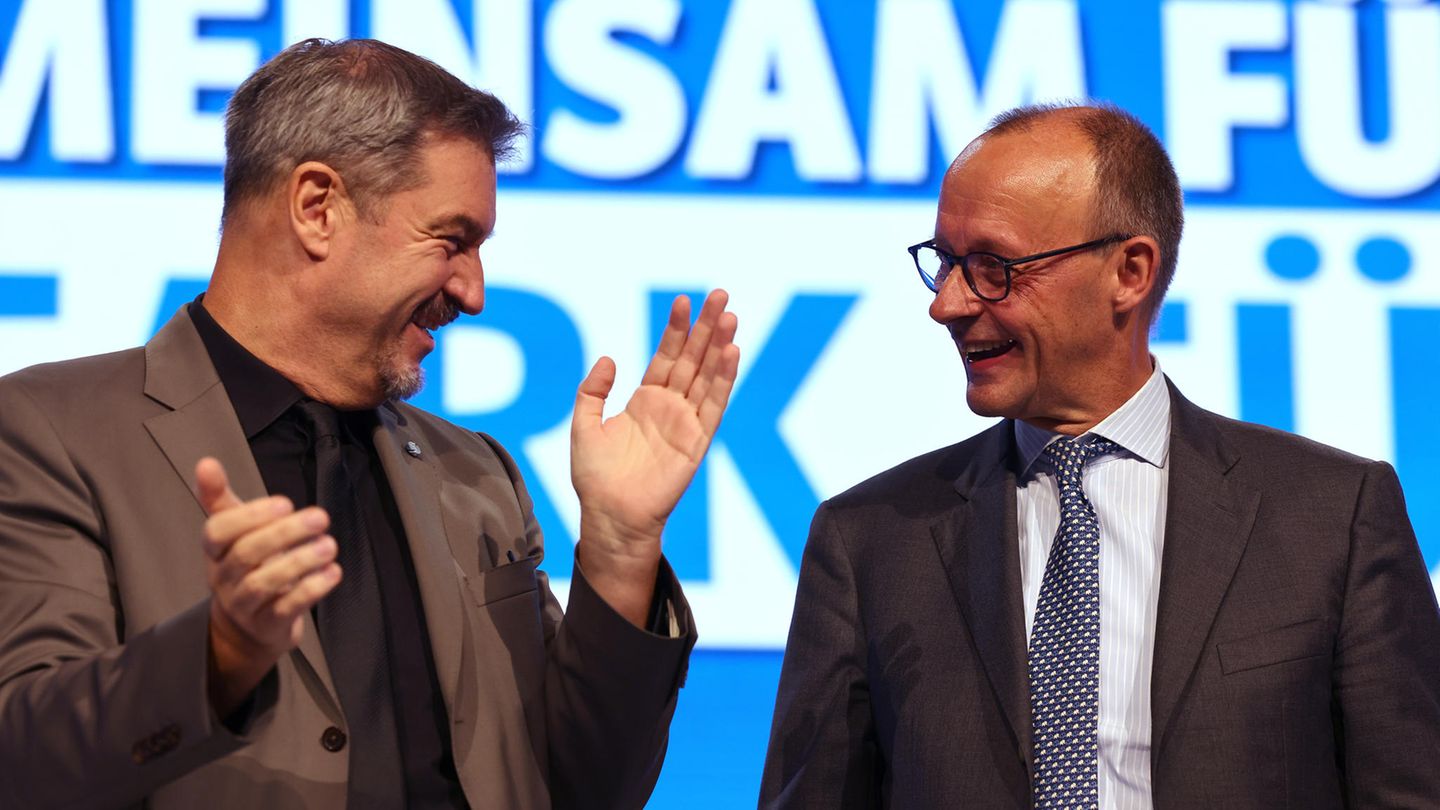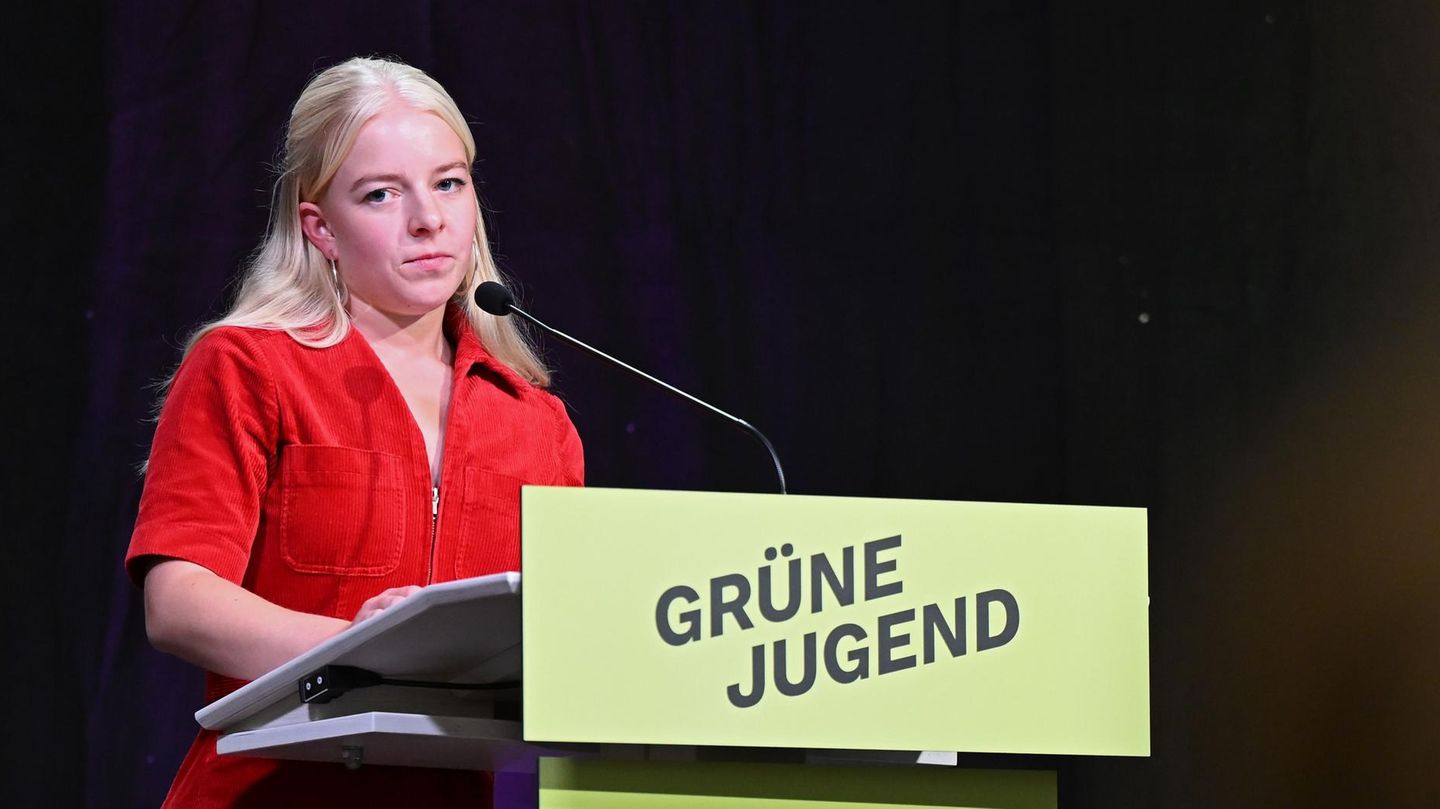Column: View from Berlin
Söder demands, Merz delivers
Copy the current link
The CDU and CSU publish their election program. The signature it bears is not that of the candidate for chancellor Friedrich Merz, but that of Markus Söder.
This Tuesday the CDU and CSU will present their election program. These are the promises with which Friedrich Merz hopes to bring the Union’s lead to the finish line on February 23rd. The signature that this program bears is not that of the candidate for chancellor, but that of Markus Söder.
Let’s remember: This time, unlike in 2021, the CSU leader never had a chance of becoming the Union’s candidate for chancellor. The reservations against him in his sister party were too great, and the anger over his cross-shots against Armin Laschet in the last election campaign was too deep. Söder’s only option was to sell his approval of Merz at a high price. You can read how much he managed to do this in the election manifesto.
The CDU has adapted the CSU’s election program
The paper “Policy Change for Germany” is the CSU’s calculation for Merz’s candidacy. This does not mean the questions on which the CDU and CSU have already reached consensus in recent months, for example on tax cuts for companies, the preference for nuclear power and the abolition of citizens’ money.
When it comes to migration policy, the CDU did not adapt to the CSU line in its election program after Angela Merkel’s departure. The brutalization of the CDU was already noticeable before: it ranges from Friedrich Merz’s unconstitutional demand for a stop to accepting refugees from Afghanistan and Syria and now culminates in the formulation that social benefits for those forced to leave the country should be based on the principle of “bed, bread and soap”. . Strengthening border controls, pushing through rejections, cutting social benefits – with pure CSU, the CDU believes it can overcome its refugee policy trauma.
That’s not all. The CSU has also dictated many smaller promises into the program, which add up to billions in benefits not only, but especially in Bavaria: the reduction in the VAT rate for food in restaurants from 19 to seven percent and the reversal of subsidy cuts for agricultural diesel are prime examples. Increasing inheritance tax allowances is also an old campaign hit of Söder’s. Homeowners in Bavaria are being treated unfairly here, says the CSU boss, after all, a gazebo in Miesbach is worth as much “as some villas in Greifswald.”
The CSU dictated many smaller promises into the election program
Finally, there is one of the favorite controversial topics of the CDU and CSU. The hapless Christian Social dual leadership after Edmund Stoiber, which once consisted of Erwin Huber (party chairman) and Günther Beckstein (Prime Minister), had already argued with Merkel in 2008 over the commuter allowance. In a state like Bavaria, this is essential in order to keep many voters happy. Because the CSU, as the governing party in Berlin, had itself agreed to limit the flat rate, Merkel and her then finance minister Peer Steinbrück refused to withdraw it at the time simply because of the CSU’s election campaign in Bavaria. This was later done by the Federal Constitutional Court, which is also true.
But today’s CSU doesn’t need such support. Söder demands, Merz delivers. Commuter flat rate high, please, please immediately. If the CSU’s self-service in the election program gives a foretaste of how Söder would behave in a future coalition, one can only wish Friedrich Merz, if he were to become chancellor, a lot of fun governing.
Nico Fried looks forward to hearing from you. Send him an email at
Published in stern 52/2024
Source: Stern
I have been working in the news industry for over 6 years, first as a reporter and now as an editor. I have covered politics extensively, and my work has appeared in major newspapers and online news outlets around the world. In addition to my writing, I also contribute regularly to 24 Hours World.





